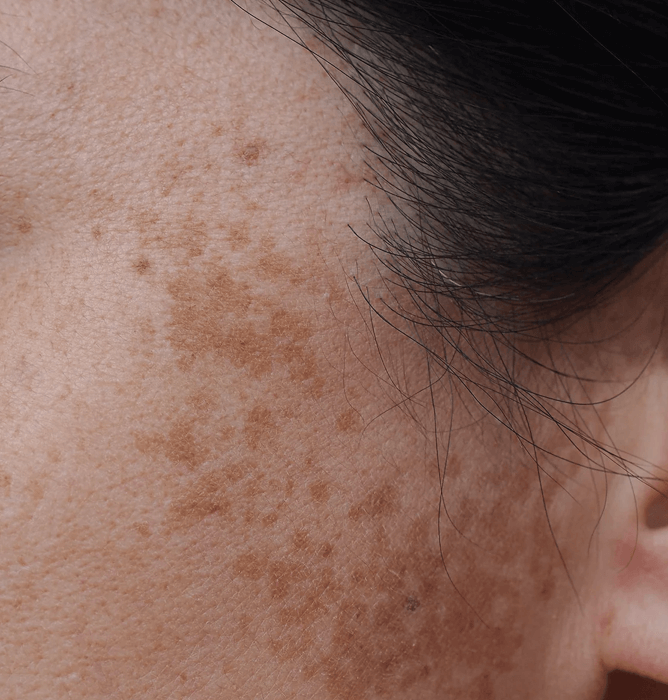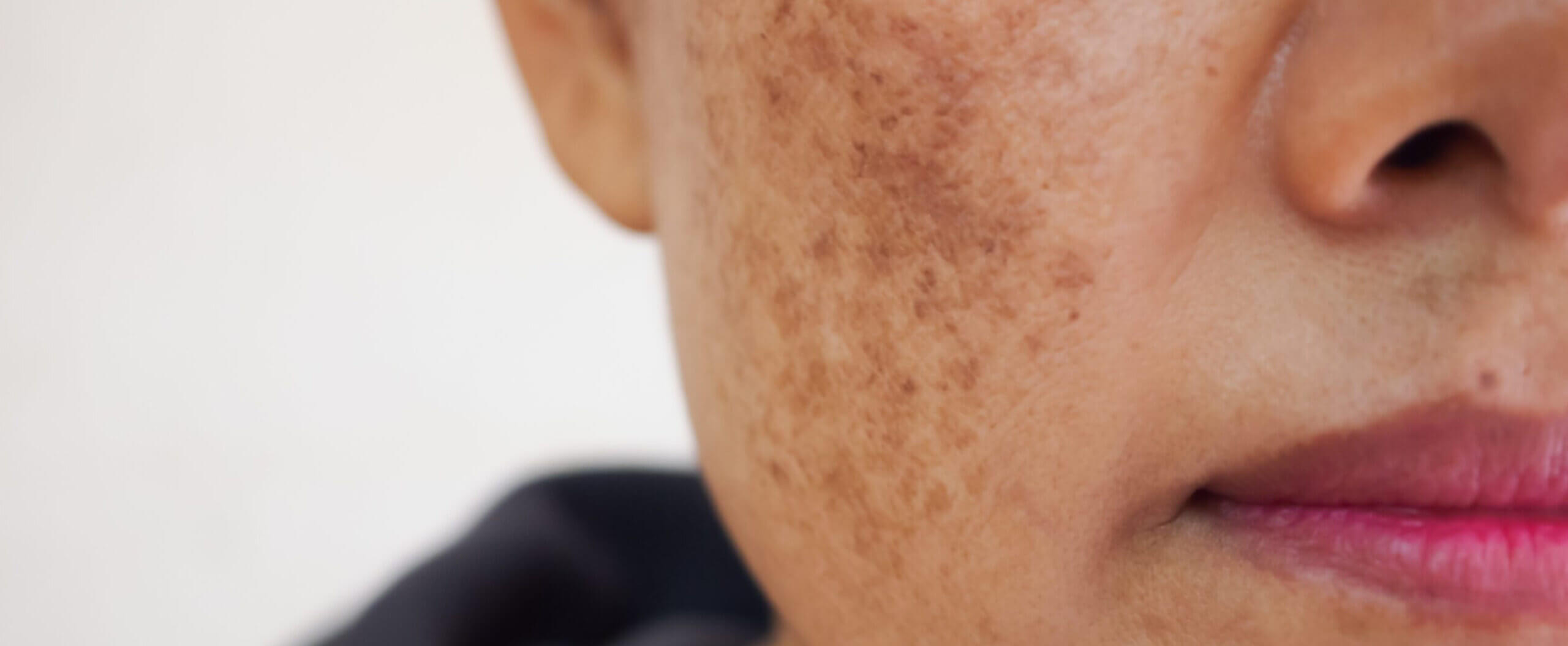Pigmentation
Pigmentation problems can occur due to unnourished skin, sun exposure, dry skin, or any combination of these.
Discolouration can also come from ineffective peels and misuse of skin products. Whether you have sunspots, dark spots, sun damage, or dark circles under your eyes, our pigmentation treatment can help.
Hyperpigmentation is an umbrella term that covers different skin conditions characterised by patches of skin becoming noticeably darker than the surrounding skin of the same area. Hyperpigmentation is at the heart of many common skin conditions, including:
Age spots – Also called liver spots or solar lentigines, age spots are usually brown, tan, or black spots that appear on the skin after repeated sun exposure.
Post-inflammatory hyperpigmentation (PIH) – Often associated with acne, PIH is characterized by darkened spots and patches on the skin. It often appears after an inflammatory skin condition or trauma such as acne, eczema, scratches, and insect bites.
Melasma – Melasma consists of brown patches that frequently appear on the face. Hormonal fluctuations are a common culprit, which is why this condition is common in women, especially during pregnancy. Melasma usually produces a pattern on the face and often appears on the forehead, cheeks, and upper lip, and typically worsens with sun exposure.
Here at Devonshire Dermatology, we offer the latest effective treatments to give you the flawless and rejuvenated skin you’re looking for.


Consultation
- Detailed history of your skin concern
- Total skin examination
- Holistic assessment of your health
- Diagnosis
- Discussion of treatment options
- Personalised treatment plan
- Treatment
FAQs
Pigmentation is the coloring of a person’s skin. When a person is healthy, their skin tone usually looks normal. If you are unwell or there is injury to your skin, it may look darker (hyperpigmentation) or lighter (hypopigmentation).
When our skin tone looks uneven with patches of hypo- or hyperpigmentation, many may feel it affects their level of confidence and hence try to cover up with makeup. Long term of covering up with makeup and without proper removal, may lead to other problems such as – pores congestion, breakouts, further blemishes on the skin, etc.
See answer

Hyperpigmentation is when your skin color is darker than usual. This happens when more melanin is produced by melanocytes due to certain triggering factors. Skin darkening may also be caused by the deposition of endogenous or exogenous pigments, such as hemosiderin, iron, or heavy metals, in the dermis.
See answer

After confirming that your hyperpigmentation is not malignant, it is important to find out the cause of your hyperpigmentations, for a better treatment plan to achieve optimal result.
There are a range of possible treatment methods that you can do to reduce your hyperpigmentation, ranging from topical to energy based devices. Depending on skin types and conditions, certain treatments may not be suitable or may cause adverse reaction and worsening of the hyperpigmented areas.
See answer



